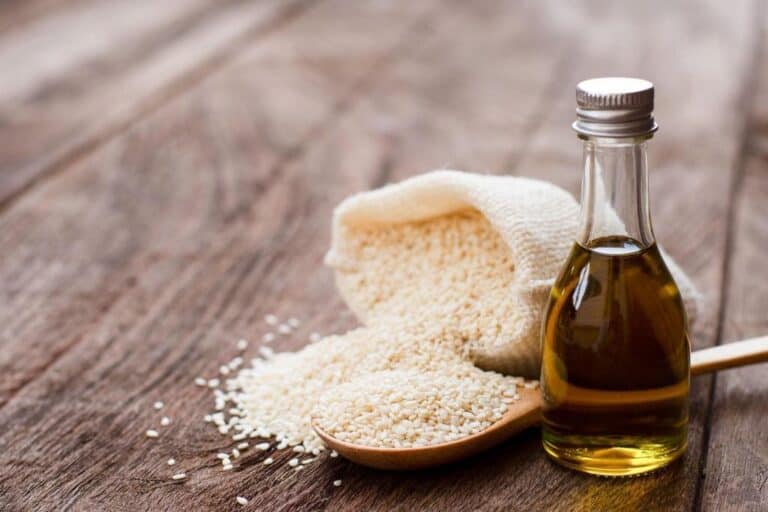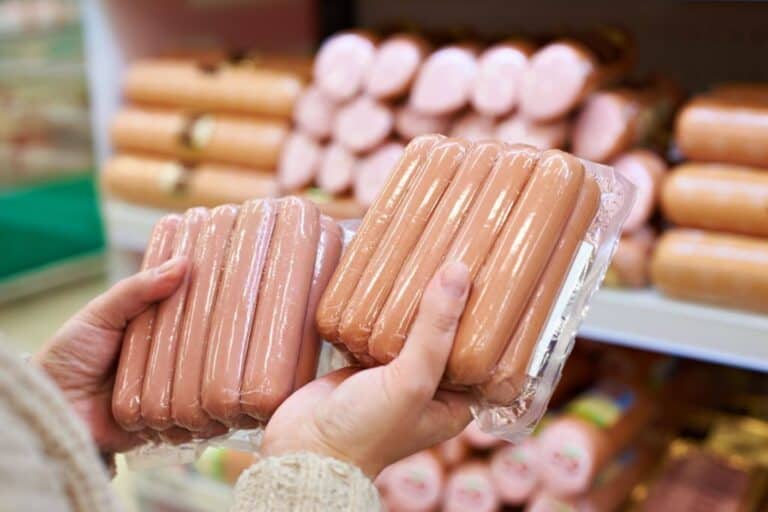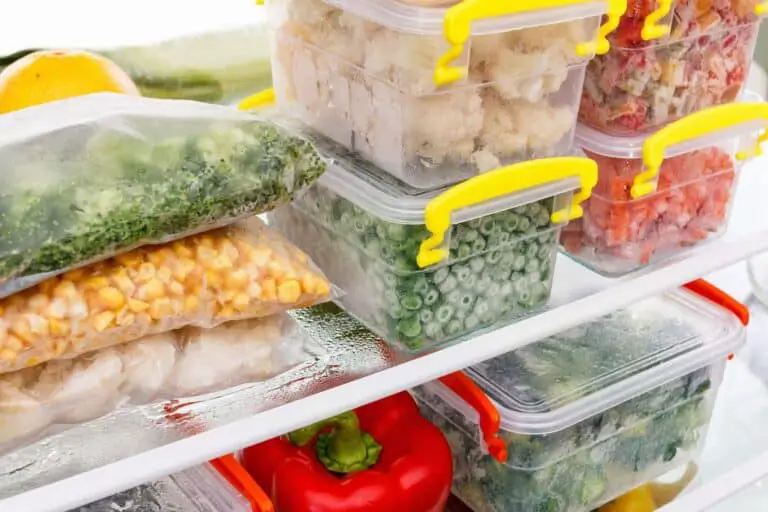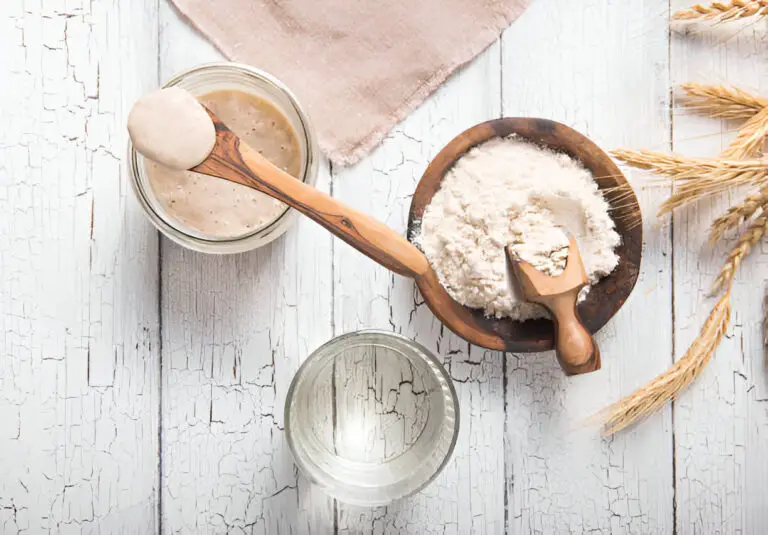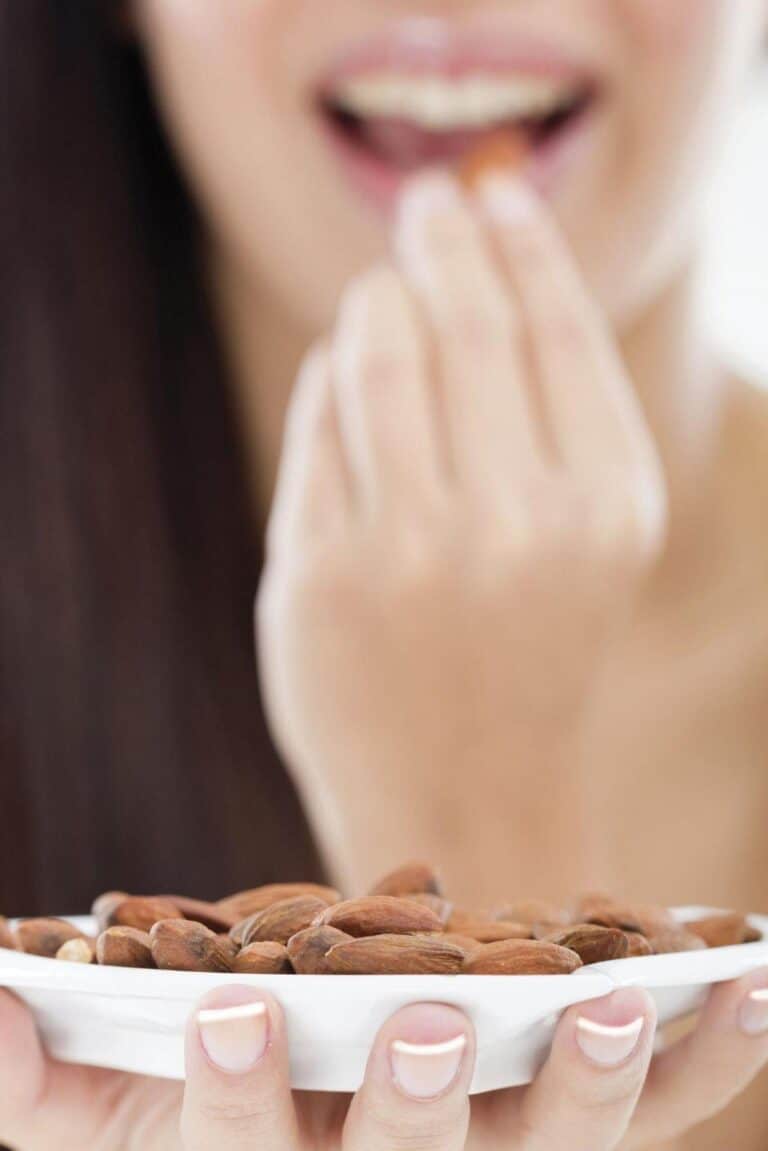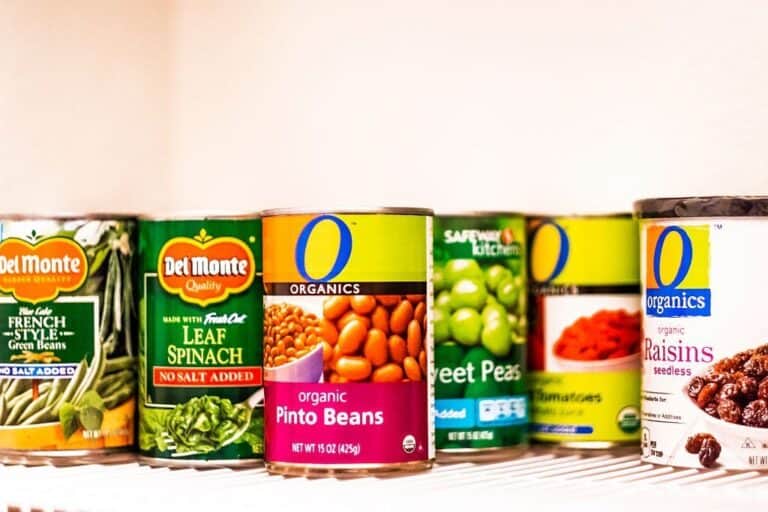Undercooked Flour: Is It Safe To Eat Raw Flour Dough?
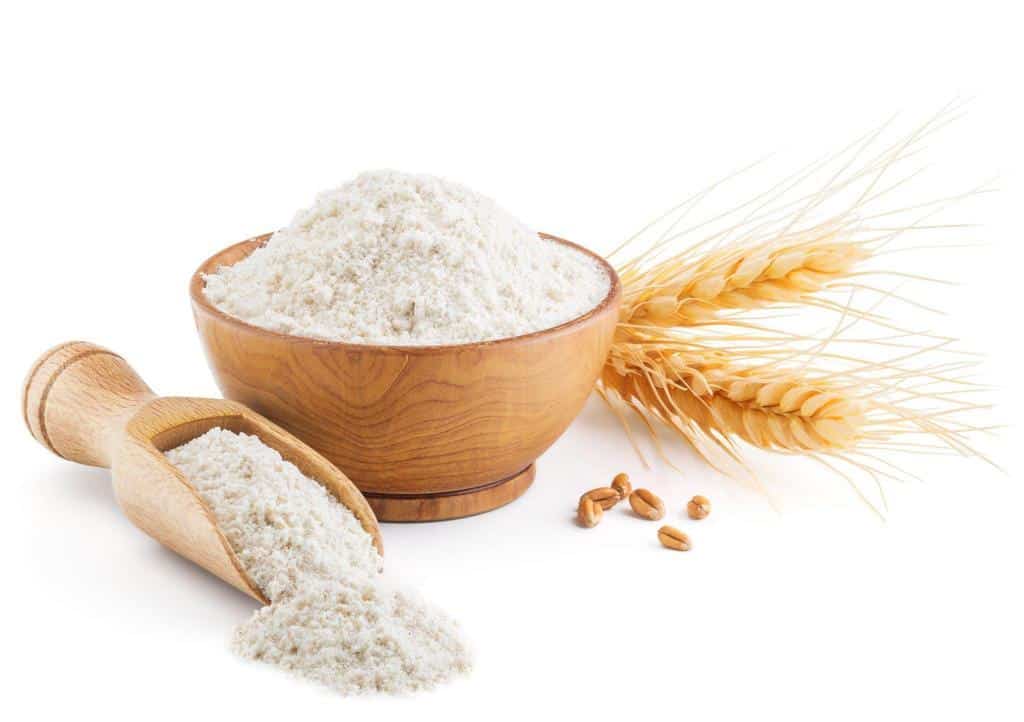
In the world of culinary exploration, the allure of tasting raw cookie dough or cake batter can be quite tempting. After all, who can resist the delicious aroma of freshly mixed ingredients? But before you take that spontaneous bite, it’s crucial to understand the potential risks associated with consuming undercooked flour.
So, is it safe to eat raw flour dough? No, it is not safe to eat raw flour dough. Raw flour can pose real problems and can make you sick if consumed.
Before you take that spontaneous bite, it’s crucial to understand the potential risks associated with consuming undercooked flour. In this article, we’ll delve into the ins and outs of undercooked flour, its risks, and whether it’s safe to indulge in raw flour dough.
In this exploration of all things undercooked, we’ll venture into the world of flour, pathogens, and delectable creations, seeking the truth behind the temptation. Brace yourself as we journey through the realms of taste and safety, unearthing insights that will shape the way you view that tempting spoonful of uncooked dough.
Introduction to Undercooked Flour
Undercooked flour refers to flour that hasn’t been subjected to heat treatment, such as baking or cooking. It’s often used as a primary ingredient in various recipes, ranging from cookies and cakes to doughnuts and pie crusts. The appeal of raw flour lies in its texture and taste, which can be different from the final cooked product.
Raw flour finds its way into many kitchen creations. It’s the base for doughs, batters, and mixes, providing the essential structure and consistency for a wide array of baked goods. From the smooth batter of cupcakes to the chewy dough of chocolate chip cookies, raw flour plays a pivotal role.
Is It Safe To Eat Raw Flour Dough?
While experimenting with culinary delights is exciting, it’s equally important to prioritize food safety. Raw flour has been linked to various health risks due to potential microbial contamination. As a result, understanding the risks associated with consuming undercooked flour becomes crucial to ensuring your health and well-being.
No, it is not safe to eat raw flour dough. Raw flour can contain harmful bacteria like E. coli and Salmonella, which can cause food poisoning or foodborne illness.
Flour is a raw food that is not treated to kill germs that cause food poisoning, and processing raw grains into flour does not kill harmful bacteria. Even though flour doesn’t look like a raw food, it usually is, just like fresh tomatoes or carrots.
Therefore, it is important not to taste or eat raw (unbaked) dough or batter, and to wash your hands, bowls, utensils, and countertops after handling raw flour, eggs, or dough. It is also important not to let children handle raw dough, including play clay and dough for crafts. Cooking is the only way to be sure that foods made with flour and raw eggs are safe
Bacterial Infections from Raw Flour Consumption
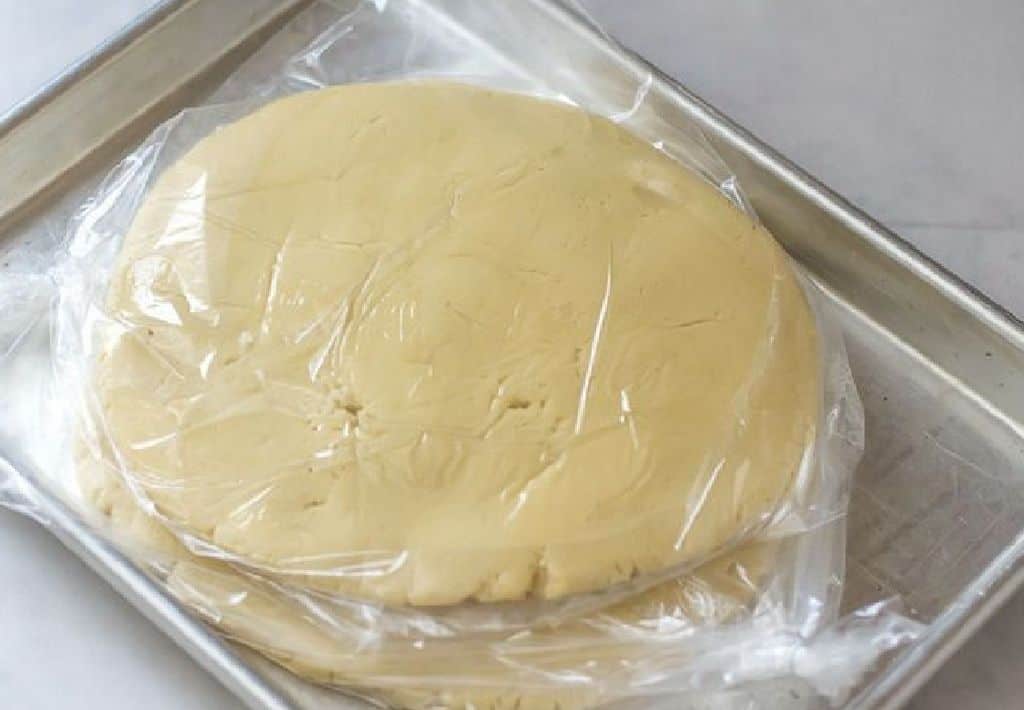
So, what’s the real risk of consuming raw flour dough? The answer is two-fold: the potential pathogens and the uncooked nature of the dough. When you indulge in raw dough, you’re exposing yourself to a higher risk of foodborne illnesses. E. coli and Salmonella can lead to symptoms like stomach cramps, diarrhea, and vomiting, which nobody wants to deal with after enjoying what was meant to be a delightful treat.
Flour, a seemingly simple ingredient, has an intricate journey from field to mill to kitchen. However, the process doesn’t eliminate the presence of bacteria, particularly strains like Escherichia coli (E. coli) and Salmonella. These pathogens can contaminate wheat before it’s even ground into flour.
When we handle raw flour, whether in homemade cookie dough or for dusting surfaces, the risk of cross-contamination becomes tangible. Without the heat required to kill these bacteria, consumption of raw, flour-laden goodies can lead to gastrointestinal distress, ranging from stomach cramps to more severe complications.
Over the years, there have been reported cases and outbreaks of foodborne illnesses linked to raw flour consumption. These incidents have spurred research and awareness campaigns to educate the public about the potential risks lurking in their kitchen cupboards.
The rise of bacterial infections from raw flour has prompted health authorities to issue warnings against the consumption of uncooked dough or batter. Even the enticing prospect of licking the spoon carries a potential hazard. The Food and Drug Administration (FDA) in the United States strongly advises against eating raw dough or batter, emphasizing that flour should be treated like any raw ingredient, with proper cooking or baking to ensure food safety.
The Role of Heat in Killing Microbes
Heat is a formidable ally in the battle against harmful microbes. Baking, cooking, or pasteurizing raw flour-based products effectively destroys E. coli and Salmonella, rendering them safe for consumption. The heat denatures the proteins of these bacteria, rendering them harmless.
Importance of Baking, Cooking, or Pasteurization
Before you dive into that raw cookie dough, consider the importance of heat treatment. Baking or cooking not only enhances the flavors and textures of your culinary creations but also ensures that any potential pathogens present in the raw flour are eliminated.
Differences Between Heat-Treated and Raw Flour in Terms of Safety
Heat-treated flour, such as the flour used in packaged cookie dough, is designed to be safe to consume without cooking. This flour has undergone a heat treatment process that significantly reduces the risk of bacterial contamination. In contrast, raw flour carries a higher risk of harboring harmful microbes.
Raw Flour in Edible Cookie Dough and Batter
Edible cookie dough and batter have gained immense popularity as indulgent treats that offer the joy of raw flavors without the commitment of baking. These ready-to-eat products cater to our cravings for nostalgia and uncooked deliciousness.
While the idea of savoring a spoonful of raw cookie dough is appealing, it’s crucial to recognize the potential risks. Raw cookie dough often contains both raw flour and raw eggs, both of which can carry harmful bacteria. It’s a double whammy of food safety concerns.
If you’re reluctant to forego the experience of raw dough, opt for heat-treated alternatives. Many commercial products offer edible cookie dough that’s formulated to be safe for direct consumption, eliminating the need for baking.
Related: How to Defrost Frozen Dough Without Sacrificing Quality or Taste
Guidelines for Safe Consumption
Importance of Reading Labels and Warnings on Flour Packaging
When embarking on a culinary journey that involves flour, the first step is to carefully read the labels and warnings on the packaging. Manufacturers often provide crucial information about whether their flour products have undergone heat treatment or are intended for consumption without cooking. Being aware of these labels can significantly contribute to making informed choices.
Suggestions for Safe Handling and Preparation of Flour-Based Foods
Safety in the kitchen extends beyond the ingredients themselves. When working with flour, ensure cleanliness by washing your hands, utensils, and work surfaces thoroughly. Avoid cross-contamination by keeping raw flour away from ready-to-eat foods. Furthermore, consider using heat-treated flour in recipes that call for uncooked elements.
Educating Consumers About Risks and Precautions
Education is an invaluable tool in the fight against foodborne illnesses. Consumers must be informed about the potential risks associated with consuming undercooked flour and the importance of following recommended preparation guidelines. Raising awareness about the dangers of raw flour consumption empowers individuals to make educated decisions in their culinary endeavors.
Conclusion
In the enchanting world of baking, the allure of raw flour dough is undeniable. However, in the quest for culinary delight, safety should always take precedence. Eating raw dough and flour safety are topics that merit attention. While raw flour can carry harmful pathogens, smart choices can mitigate these risks.
The health hazards of undercooked flour might not be as apparent as with raw meat, but they’re real. Can undercooked flour make you sick? Absolutely. The risks of consuming flour in its raw form are linked to the potential presence of bacteria like Salmonella and E. coli. It’s not just a question of taste; it’s about avoiding ffoodborneillnesses and taking necessary precautions.
Heat treatment through baking, cooking, or pasteurization is a reliable strategy to ensure your culinary adventures remain deliciously safe. So, the next time you’re tempted to sneak a taste of raw dough, consider the power of heat to protect your well-being. Your taste buds will thank you, and your health will, too.
But what if you’re yearning for the comfort of raw dough while maintaining safety? Uncooked flour and food safety can coexist. Pasteurized eggs and heat-treated flour can be your allies in the pursuit of doughy pleasure. By opting for these safer alternatives, you can savor the joys of uncooked dough without jeopardizing your health.
Remember, pasteurized eggs and heat-treated flour can be your allies in the pursuit of doughy pleasure. By opting for these safer alternatives, you can savor the joys of uncooked dough without jeopardizing your health. So, as you embark on your baking escapades, make informed decisions, and let the aroma of your creations fill the air with both delight and assurance.
FAQs on Eating Raw Dough and Flour Safety
Can I taste raw cookie dough?
It’s not recommended, as raw cookie dough can contain harmful bacteria. Baking the dough is the safer option.
Is all flour potentially contaminated?
While not all flour is contaminated, the risk exists. It’s advisable to handle and cook flour-based products properly.
Can I use raw flour in no-bake recipes?
Using heat-treated flour or following recipes that call for safe alternatives reduces the risk of illness in no-bake dishes.
Are there safe ways to enjoy raw flour products?
Yes, using heat-treated flour or flour alternatives in recipes for raw dough or batters can make them safe to consume.
What should I do if I suspect flour-related illness?
If you experience symptoms like stomach cramps or diarrhea after consuming raw flour products, seek medical attention and mention your concerns.
How can I make edible cookie dough at home?
To make safe edible cookie dough, use pasteurized eggs or egg substitutes, and consider using heat-treated flour. This minimizes the risk of bacterial contamination and makes the dough safe to consume raw.
How can I reduce the risk of foodborne illnesses?
To reduce the risks of foodborne illnesses, cook ingredients thoroughly, practice proper food hygiene, wash hands, surfaces, and produce, and consider using pasteurized eggs and heat-treated flour when making recipes involving raw elements.

